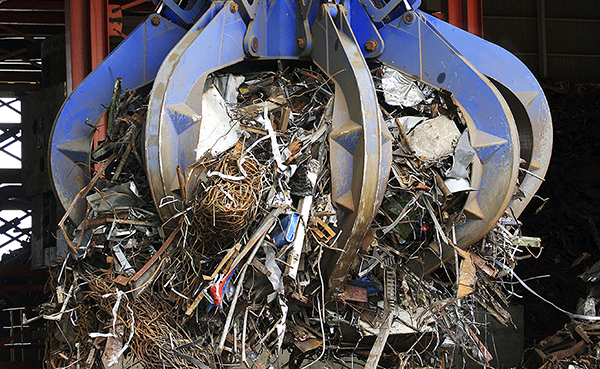Scrap futures contracts on the London Metal Exchange saw significant gains over the week to Aug. 26, while the near-term forward curve strengthened.
Platts assessed the August scrap contract up $2/mt week on week at $460.50/mt on Aug. 26, while the September contract increased $10.50/mt to $470.50/mt. The October contract jumped $14.50/mt week on week to $470.50/mt, while the November contract rose $11.50/mt to $465.50/mt.
The contango structure for the August-September portion of the forward curve strengthened week on week, suggesting that futures traders expect physical prices to gain in the near term. The backwardation structure for the September-October portion of the curve shifted into a flat structure, while the backwardation structure of the October to November portion of the curve strengthened slightly.
Spot prices for physical imports of premium heavy melting scrap 1/2 (80:20) dipped $2.50/mt week on week to $447.50/mt CFR Turkey on Aug. 26, as Turkish buyers held back on new purchases or indicated lower price targets that did not match suppliers’ quotations.
Turkish buyers may become more active again in early September, when they will be seeking October shipments. One European recycler said some mills had already started looking for October but were not providing firm bids. The recycler said Turks were unlikely to ease the pressure on scrap prices unless they start to sell significant volumes of finished steel to Asia. “The way they are talking to us it seems they are not getting much action,” he said.
Weekly LME scrap futures trading volumes over the week to Aug. 26 totaled 5,760 mt, down from 16,320 mt recorded the week before.
For near-term rebar futures on the London Metal Exchange , the August-September portion of the forward curve shifted into a slight backwardation from a strong contango the previous week, while the September-October portion of the curve moved into a soft contango. This suggested futures traders expect physical rebar prices to continue to soften slightly in the near term given poor physical steel demand, before gaining some strength as the fourth quarter begins. The October to November potion of the curve shifted into slight backwardation, compared to a soft contango a week earlier.
Platts assessed the August contract up $6/mt week on week at $695.50/mt on Aug. 26, while the September contract dropped $5/mt to $694.50/mt. The October contract was unchanged at $699.50/mt, while the November contract fell $9.50/mt week on week to $695/mt.
Turkish physical rebar export prices fell $9/mt week on week to $670/mt FOB on Aug. 26, as scrap prices softened, and a continuous lack of demand kept pushing workable levels lower. Holidays in Europe, as well as fierce competition from Indian and Vietnamese mills in the Far East, along with high freight rates, continued to significantly hinder the ability of Turkish mills to sell large tonnages to Singapore and Hong Kong.
One European trader told S&P Global Platts that Turkish mills might be able to sell rebar to Europe at higher prices than the general market. “But the matter of fact is that the October quota is well overpassed. So, buying for Europe now means paying the 25% [antidumping duty] or customs clear [shipments] in January,” he said. “So I don’t see the sense in buying for Europe, unless the price plus the 25% is well cheaper than local pricing.”
The source said Turkish mills need to sell below $600/mt FOB to Europe to make it worthwhile, including the 25% duty, or sell to Africa, Asia or South America, since Turkish rebar prices are competitive for those destinations.
The daily outright spread between Turkish export rebar and import scrap was assessed at $222.50/mt Aug. 26, down $6.50/mt week on week.
Rebar futures weekly trading volumes this week on the LME totaled 450 mt, down from 9,060 mt recorded a week earlier.
— Rabia Arif






